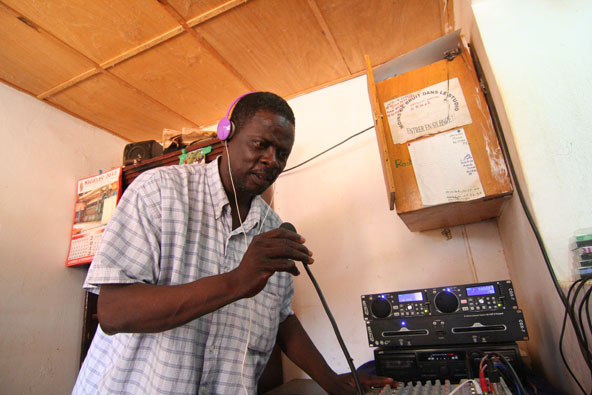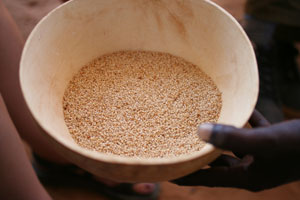
Tillabéri, AFRICA — If there were a red “on air” light, it’d only glow for five hours a day.
Still, those are info-packed and likely commercial-free hours. The sounds coming from Radio Sirba, a 10-year-old radio station in the Garbey Kourou Village of Niger, are strictly educational.

The volunteer-run station launched through the help of Catholic Relief Services shares information about crops, education and health. It spans 50 kilometers.
“They never wanted a radio station,” said Ali Aroura, a village leader.
Once the adults started listening and understood the help it can provide, they embraced it, he said. They quickly saw tangible value in the radio station too.
“It has reduced the amount of livestock stolen in the area,” he said. Radio gives producers the power to broadcast a “crime log,” so to speak, which has led to recovered property and caught at least 10 thieves.
The station also has its loyal listeners. Clubs of women gather to hear the latest tips on harvesting. A four-year project to help 60 area villages produce sesame, onion and okra wrapped up last fall. Another 5,000 villagers also received help through CRS’s Cash for Work program.
The projects helped 15-year-old Roukaya Seidou’s parents build shelter for the family. They also gave her parents’ incomes enough a boost to allow them to buy clothing for their child.
Other parents are able to pay bills she said, and when school starts, they can afford supplies.
Perhaps the biggest change brought on by the radio and the bigger crop development project was the introduction of sesame oil.
“We were used to working with sesame because it was here before the project began and peanuts,” Hamata Adamou said. “We didn’t know we could do oil with sesame.”
The benefits and demand are clearer now.
“It used to be hard to take seeds out of the pods,” Adamou said. Then the project revealed easier ways so that now, “even children are able to understand and to work.”
Some of the villagers are eager to discover more research on sesame oil so they can better market its nutritional value.
“Most people in the past who didn’t cultivate sesame now prefer to because it provides more income,” said a man wearing a dark gray head covering. A tall jar of sesame oil translates into the equivalent of US $10.
There’s also interest in creating soap. The radio station, by producing sanitation messages, has changed behaviors in that regard, too.





